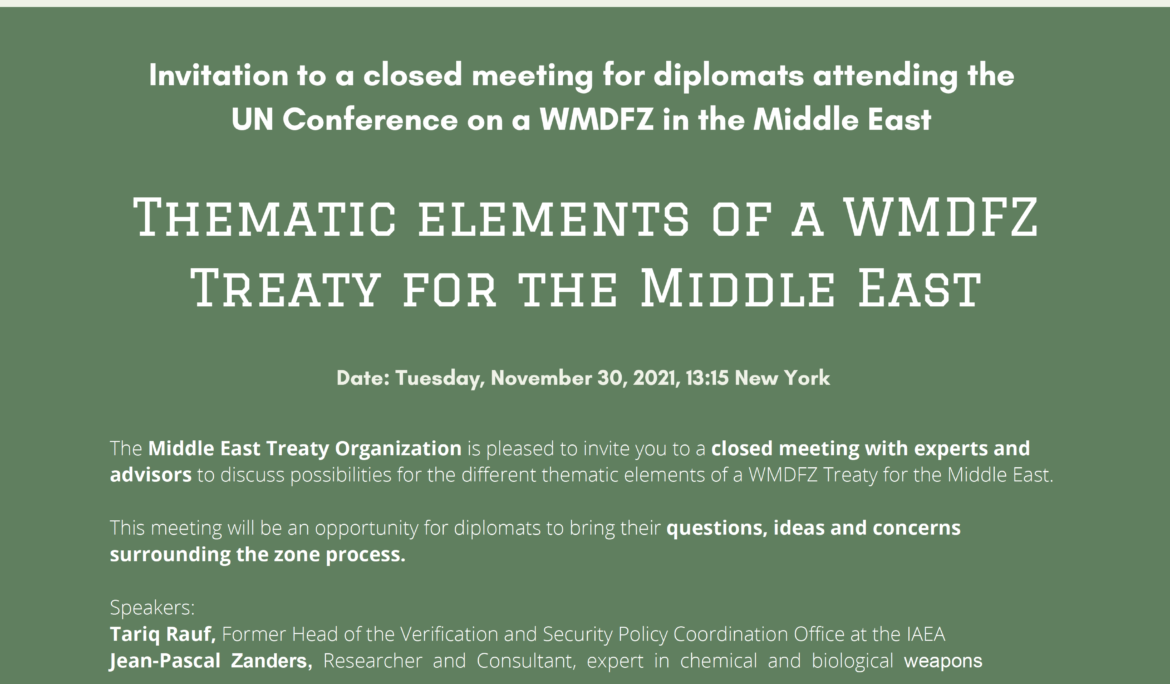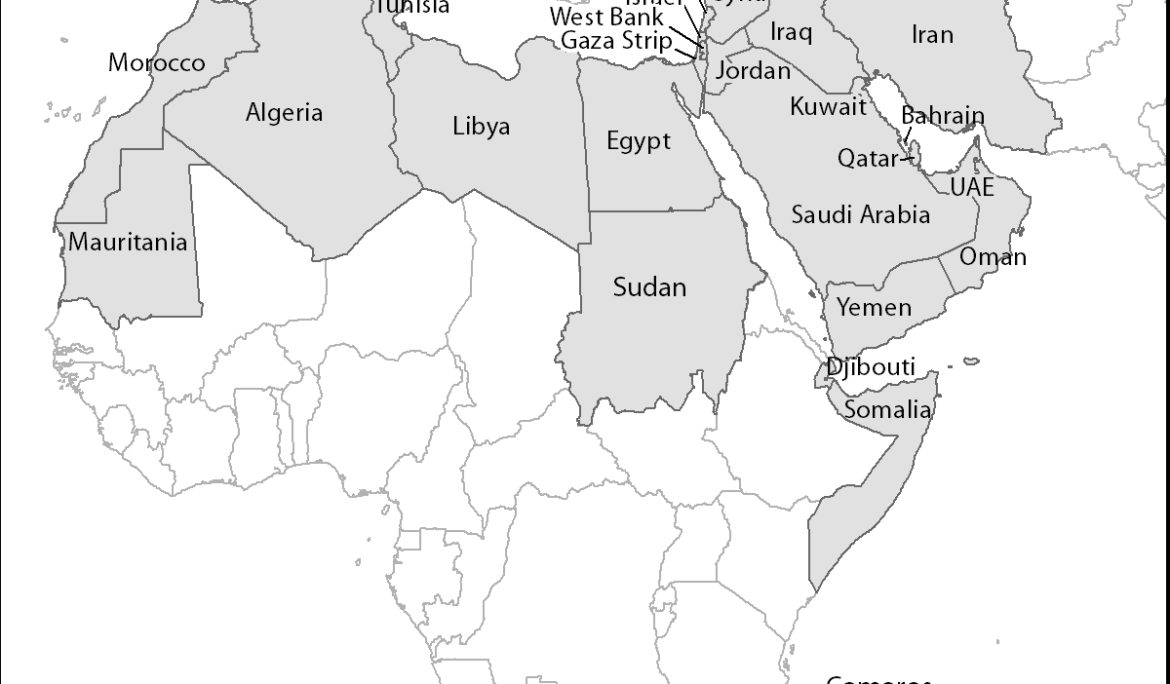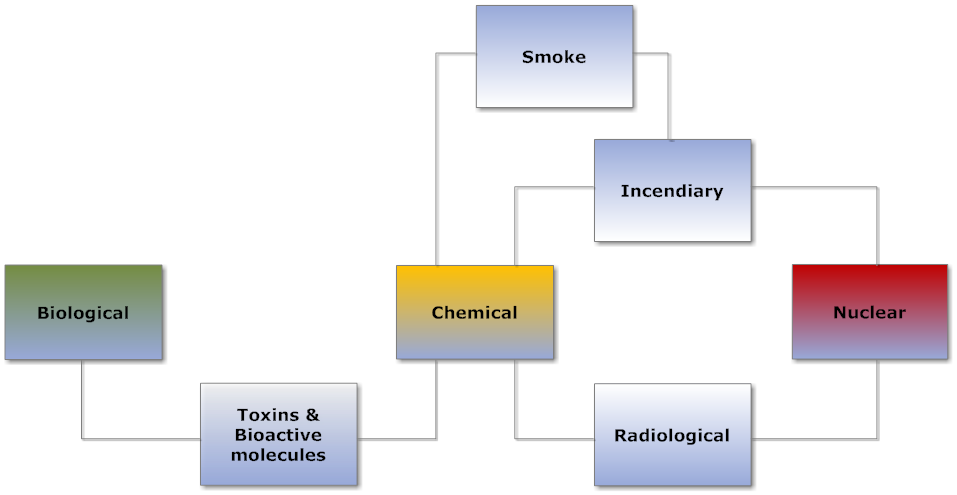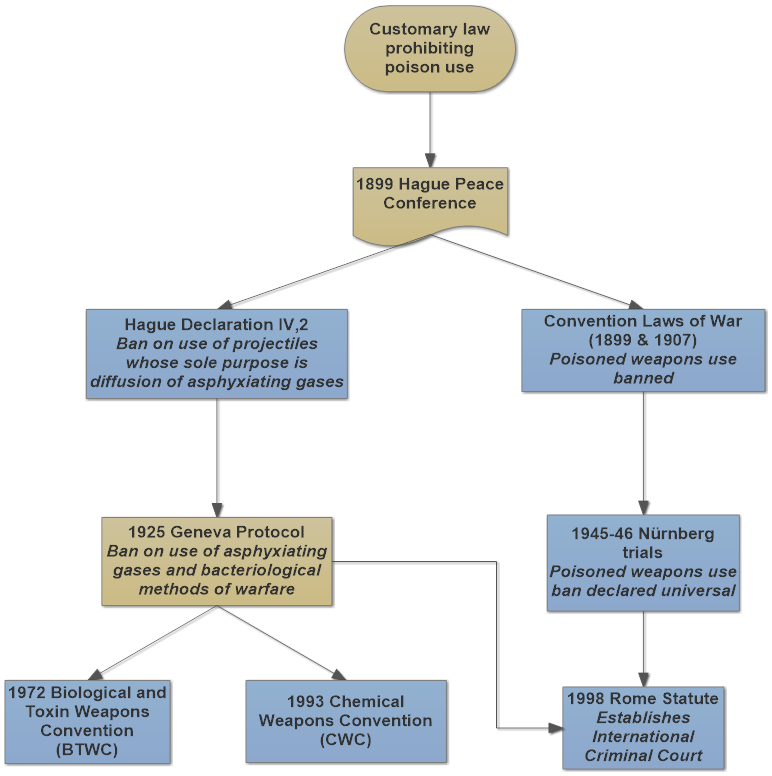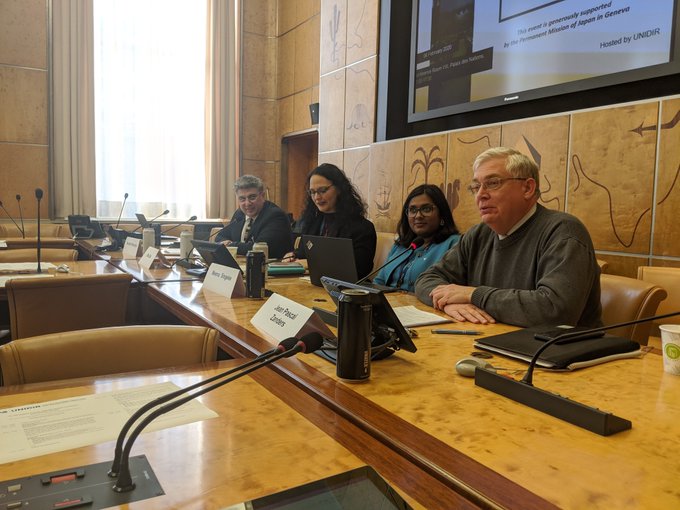Trying to picture a treaty for a Middle East Zone free of non-conventional weaponry
On 30 November, the Middle East Treaty Organisation (METO) – a coalition of civil society activists and practitioners – organised an informal virtual discussion round with Middle Eastern diplomats participating in the Second Session of the Conference on the Establishment of a Middle East Zone Free of Nuclear Weapons and Other Weapons of Mass Destruction under the auspices of the UN Office of Disarmament Affairs. That session should have taken place last year, but the COVID-19 pandemic forced postponement of in-person UN diplomatic gatherings. Last Tuesday’s informal discussion forms part of METO’s efforts to draft and promote a treaty for …
Regional security and the Chemical Weapons Convention: Insights for the Middle East (Part 2)
In November 2019, the first annual meeting exploring the possibility of creating a zone exempt of non-conventional weaponry in the Middle East took place. The COVID-19 pandemic forced the postponement of the second meeting in 2020. Conditions permitting, the session is now scheduled for this autumn. Meanwhile, the conference has organised two informal workshops, the second one of which was held virtually on 23-25 February. Entitled ‘Good Practices and Lessons Learned with respect to the implementation of Treaties establishing Nuclear-Weapon-Free Zones’, the workshop’s third session looked at the core obligations governing chemical and biological weapons (CBW). It aimed to glean …
Regional security and the Chemical Weapons Convention: Insights for the Middle East (Part 1)
In November 2019, the first annual meeting exploring the possibility of creating a zone exempt of non-conventional weaponry in the Middle East took place. The COVID-19 pandemic forced the postponement of the second meeting in 2020. Conditions permitting, the session is now scheduled for this autumn. Meanwhile, the conference has organised two informal workshops, the second one of which was held virtually on 23-25 February. Entitled ‘Good Practices and Lessons Learned with respect to the implementation of Treaties establishing Nuclear-Weapon-Free Zones’, the workshop’s third session looked at the core obligations governing chemical and biological weapons (CBW). It aimed to glean …
A Middle East Zone Free from Non-conventional Weapons (4)
Part 4: Clear legal definitions at the core of the future treaty This article is the fourth in a series of blog postings exploring the opportunities and challenges facing a new series of conferences at the United Nations in New York to eliminate non-conventional arms – essentially nuclear weapons, and to a lesser extent chemical and biological weapons (CBW) – from the military arsenals in the Middle East. Why legal definitions matter By adopting Decision 73/546 on 22 December 2018, the UN General Assembly tasked the newly established conference with ‘elaborating a legally binding treaty establishing a Middle East …
A Middle East Zone Free from Non-conventional Weapons (3)
Part 3: Defining the Middle East, a loaded question In November 2019 a conference at the United Nations in New York (report here) marked a fresh round of diplomatic efforts to eliminate non-conventional arms – essentially nuclear weapons, and to a lesser extent chemical and biological weapons (CBW) – from the military arsenals in the Middle East. As indicated in the second part of this series, participants in the new conference series depart from the definition of the Middle East used by the International Atomic Energy Agency (IAEA). At the UN Institute for Disarmament Research (UNIDIR) seminar ‘The Middle …
A Middle East Zone Free from Non-conventional Weapons (2)
Part 2: Treaties governing chemical and biological weapons In November 2019 a conference at the United Nations in New York marked a fresh round of diplomatic efforts to eliminate non-conventional arms – essentially nuclear weapons, and to a lesser extent chemical and biological weapons (CBW) – from the military arsenals in the Middle East. This article is the second in a series of blog postings exploring the opportunities and challenges to ensure that the regional risks of CBW threats and use – chemical weapons (CW) were and, as I am writing, are part of conflicts in the Middle East …
A Middle East Zone Free from Non-conventional Weapons (1)
Part 1: A new process to disarm the Middle East In November 2019 a conference at the United Nations in New York marked a fresh round of diplomatic efforts to eliminate non-conventional arms – essentially nuclear weapons, and to a lesser extent chemical and biological weapons (CBW) – from the military arsenals in the Middle East. The previous initiative died in 2015 as the review conference (RevCon) of the 1968 Nuclear Non-Proliferation Treaty (NPT) failed to agree on a consensus document. The new series of annual meetings takes place outside the NPT RevCon cycle, which consists of a quinquennial …
Allegations of Iranian Use of Chemical Weapons in the 1980–88 Gulf War – Preface
Whether Iran launched chemical weapon (CW) attacks against Iraq during the 1980-88 Gulf War has been the subject of a long-lasting controversy. Iraq was responsible for initiating chemical warfare in the early 1980s in blatant violation of the 1925 Geneva Protocol prohibiting CW use in war (since then, more broadly termed ‘armed conflict’). Negotiations for the Chemical Weapons Convention were ongoing and would not be concluded until September 1992. Nothing in the Geneva Protocol prevented Iran from developing, producing and stockpiling CW. Little stood in its way to retaliate in kind. The Gulf War also took place in the final …
Palestine: From a ‘will-be’ party to the CWC to a ‘would-have-been’?
Something really remarkable happened in the first two weeks of 2018. On 2 January, quite out of the blue came the notification by UN Secretary-General António Guterres that the State of Palestine had deposited its instrument of accession to the Chemical Weapons Convention (CWC). It was to become the 193rd state party on 28 January, thirty days after having submitted the document (29 December). Indeed, ‘was’. Guterres formally informed UN members on 11 January that Palestine had withdrawn its instrument of accession three days earlier. States withdrawing from a disarmament or arms control treaty is extremely rare. But it does …
Palestine’s withdrawal of its instrument of accession to the CWC (Part 2)
In my blog posting of 16 January entitled ‘Palestine: From a “will-be” party to the CWC to a “would-have-been”?’, I described how Palestine submitted its instrument of accession to the Chemical Weapons Convention (CWC) with the UN Secretary-General on 29 December, only to withdraw it on 8 January. Since having achieved the status of ‘UN non-member observer state’ in 2012, Palestine has joined over 50 international agreements, including the Biological and Toxin Weapons Convention, to which it became formally a party on 16 January. The CWC is the only treaty on which it reversed its position. Retracting an instrument of …

